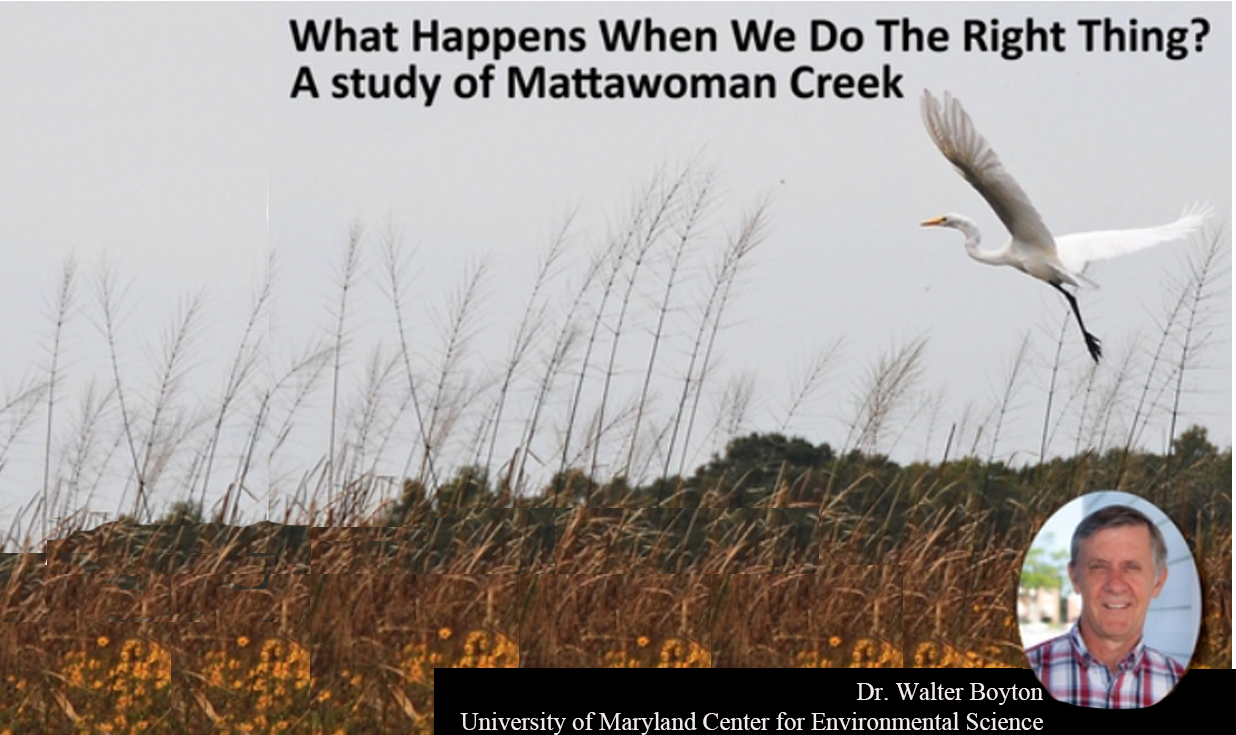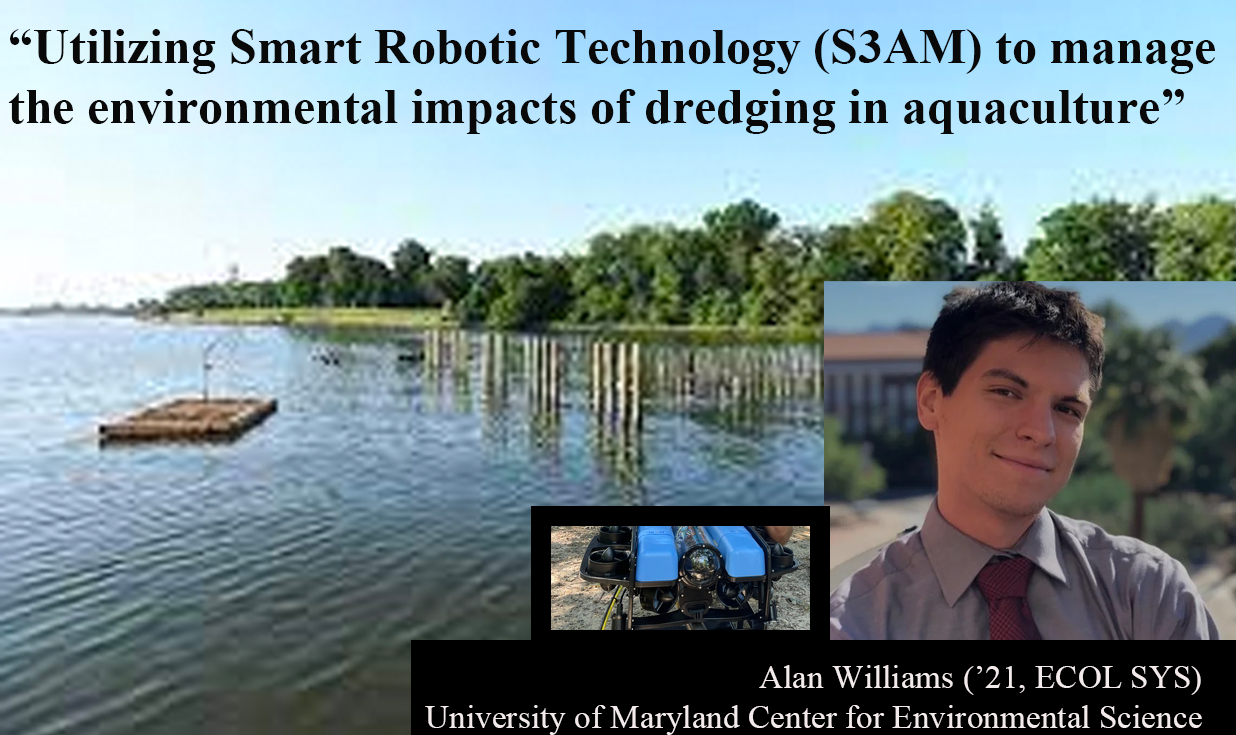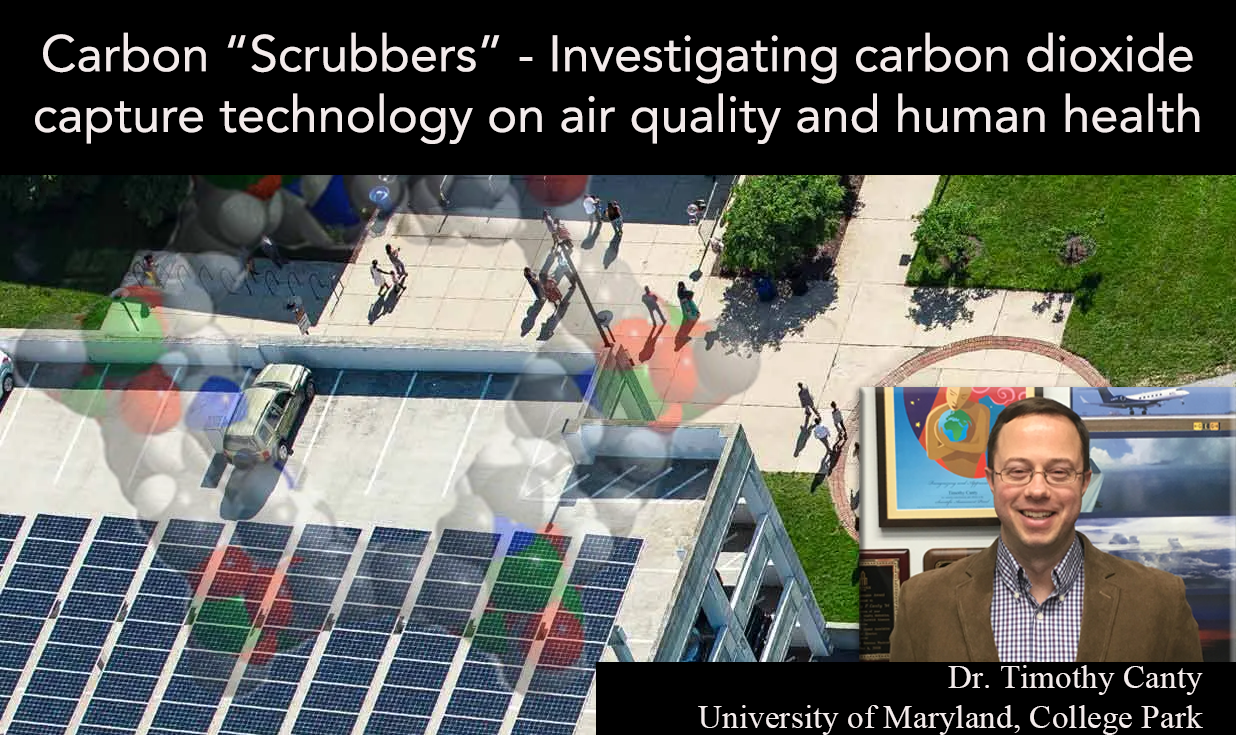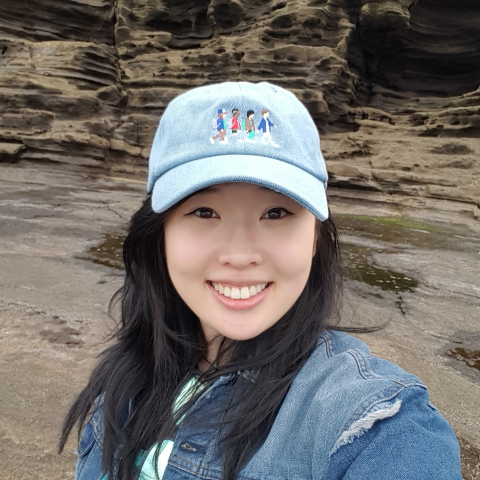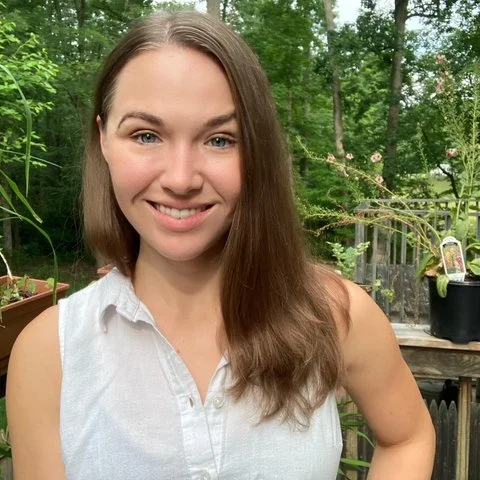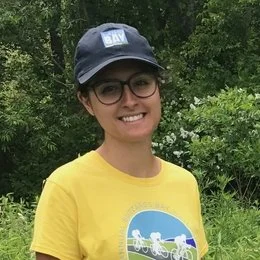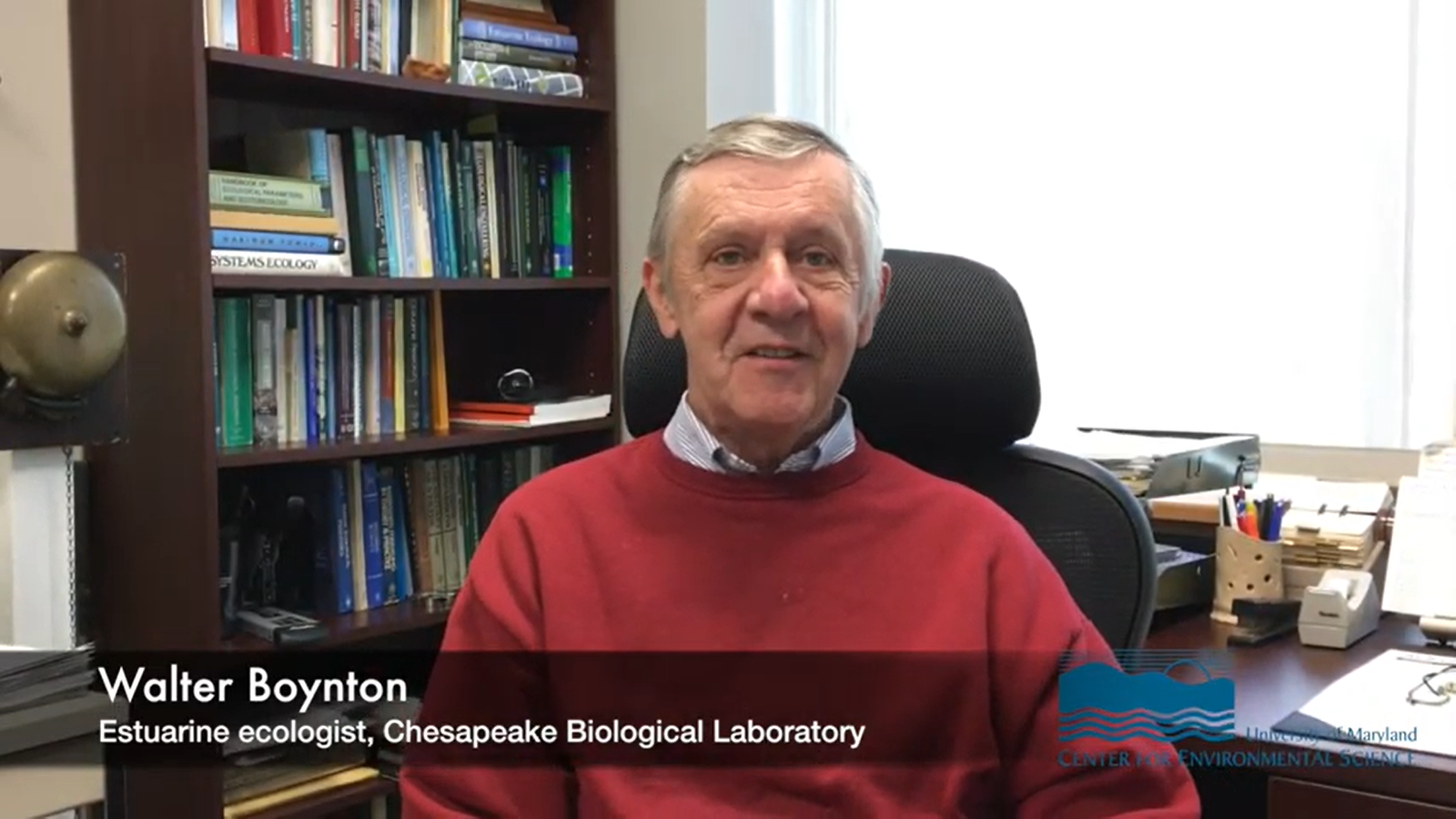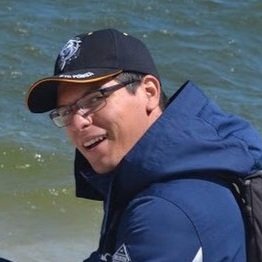Kohma Arai. Photo Courtesy: UMCES/CBL
2023 MEES Graduate Memorial
AND Fellowship Awards
ALUMNI CORNER
July 13, 2023 - The MEES Graduate Program would also like to extend our congratulations to all our 2023 MEES Program Memorial & Fellowship Student award winners!
Kohma Arai (Ph.D., ECOL SYS) advised by Dr. David Secor, earned his Ph.D. MEES this Summer 2023 at the University of Maryland Center for Environmental Sciences (UMCES). Kohma’s dissertation research aimed to explore the role of spatial structure on the population dynamics of marine fishes using the Atlantic mackerel (Scomber scombrus) in the Northwest Atlantic, and the striped bass (Morone saxatilis) in the Hudson River as model species.
Congratulations to Our 2023-2024 Student Fellowship &
Memorial Award Winners!
2023 Deborah Morrin-Nordlund Travel Award | 2023 Reid Evans Menzer memorial award
Jens Wira Photo Courtesy: UMCES/IMET
Matthew Stefanak Photo Courtesy: UMCES/CBL
Joshua Akinola UMES
Carol Kim Photo Courtesy: UMCES/HPL
Miranda Judd Photo Courtesy: UMCES/IMET
Paulina Huanca Photo Courtesy: UMCES/HPL
July 13, 2023 - Congratulations to Jens Wira (advisor Dr. Allen Place (UMCES), Matthew Stefanak (advisor Dr. Ryan Woodland), and Joshua Akinola (advisor Dr. Paulinus Chigbu) who are the newest recipients of the prestigious and highly competitive Deborah Morrin-Nordlund Travel Award, and Carol Kim (advisor Dr. Sairah Malkin), Miranda Judd (advisor Allen Place) and Paulina Huanca (advisor: Dr. Clara Fuchsman, Dr. Jacob Cram (co-advisor)) who also earned the prestigious Reid Evans Menzer Memorial Award! This is a well earned recognition of all your hard work. The MEES program is very proud of you!
2023 MEES GRADUATE 2023 BILL HUPPERT ENDOWED 2023 CLINT WATERS AWARD PROGRAM FUND STUDENT AWARD IN MEES
Shuxian Wu UMBC/IMET
Kaitlyn Wade Photo Courtesy: UMCES/CBL
Nina Santos Photo Courtesy: UMCES/CBL
Isabel Sanchez-Viruet Photo Courtesy: UMCES/CBL
July 13, 2023 - The MEES Graduate Program would also like to extend our congratulations to Shuxian Wu (advisor: Dr. Ten-Tsao Wong) and Kaitlyn Wade (advisor: Dr. Michael Wilberg) who were awarded the MEES Graduate Program Fund, Nina Santos (advisor: Dr. Ryan Woodland) who was awarded the 2023 Bill Hupper Endowed Student Award, and our very own Isabel Sanchez-Viruet (advisor: Jeremy Testa) who was awarded the 2023 Clint Waters Student Award. These prestigious and highly competitive scholarships provides merit-based awards for graduate students in MEES and is selected by the Director of the Marine Estuarine & Environmental Sciences Graduate Program. Congratulations to all of our students!!
Back to Top
faculty focus - Dr. Walter Boynton (UMCES)
Faculty Focus: Dr. Walter Boynton (Professor Emeritus) has been a MEES faculty member for many decades, based at the Chesapeake Biological Laboratory (CBL), University of Maryland Center for Environmental Science since 1975. Boynton’s research expertise is estuarine ecology, particularly issues related to eutrophication and ecosystem restoration. He has published over 100 scientific papers and many more technical reports related to water quality, habitat and restoration issues. All of this research involves coastal and estuarine eutrophication and restoration of these ecosystems. Check out Dr. Boynton in this special UMCES Science for Communities Seminar entitled: “What Happens When We Do The Right Thing?” as he discusses nutrient pollution in the Bay, using the Mattawoman Creek, a tributary of the Potomac River, as an example. Follow Dr. Boyton through this talk which provides incredible details, piecing together this success story on this huge clean up effort. For more on Dr. Boynton, please click here.
Back to Top
Alan Williams (‘23, ECOL SYS) Photo Courtesy: UMCES/HPL
MEES RESEARCH CENTER
Utilizing smart robotic technology (s3am) TO MITIGATE THE EFFECTS OF DREDGING IN AQUACULTURE
Alan Williams (‘23, ECOL SYS) first entered the MEES graduate program as a Master’s student at the University of Maryland Center for Environmental Science in Fall 2021 and is now pursuing a Ph.D. in MEES this Fall 2023. Advised by Dr. Matthew Gray, Alan’s research revolves around how sediment plume dynamics created by dredging equipment affects the eastern oyster (Crassostrea virginica) in comparison to submersible, remote operated vehicles (ROVs). Prior to joining the MEES Program, this Razorback alum earned his Bachelor’s degree in Mechanical Engineering, along with a Minor in both Mathematics and Marine Science from the University of Arizona in Spring 2020. While at the University of Arizona, Alan actively participated in various student and non profit organizations which included: President of the Biosystems Engineering Club where he assisted, among various other projects, in designing and constructing a working hydroponic system for lettuce crops which could be sold to fund other projects, and designed a quarantine tank to house salt water marine animals long enough to remove any viruses or illnesses they may have to serve the projects marine environmental restoration efforts. Alan also joined as a Volunteer at the U of A’s Marine Awareness and Conservation Society participating in over 5 outreach events a semester which aimed to inform the public about ocean ecosystems and raise money for various conservation efforts. During the summer of his junior year, Alan joined the team at the MMT Observatory (MMTO) as an undergraduate student employee where he designed over 20 parts and assemblies using SolidWorks 2016/2020 software which include: a cart system to transport jack systems, a mount for the new jack systems, and located, organized and archived over 1000 AutoCad drawings of parts, assemblies and components using Microsoft Excel. All of these experiences fueled Alan’s desire to learn about how engineers can make an impact in creating sustainable environments. After graduation, Alan was hired as a Mechanical Engineer at the MMT Observatory and continued to investigate potential options and then develop solutions to present for approval to the engineering team. Under the Engineering Manager, Dr. William Goble, Alan repackaged the mechanical pumps used in the process of coating MMTO’s 6.5m diameter primary mirror which required him to develop and present an original detailed design to the lab’s technical experts and management. The resulting presentation and design were so well received, that MMT began plans to start fabricating the parts necessary to deploy Alan’s original designs! The summer before his senior year, Alan had the opportunity join the REU Program at the Maryland Sea Grant where, in collaboration with Dr Dong Liang (UMCES) and Dr Chris Rowe (UMCES)’s research on the impact of climate change on diamondback terrapin, Malaclemys terrapin, helped develop a Regression Spline Mixed Model algorithm to relate terrapin nest temperature to the air temperature of the nesting site, and conducted field research on the beaches of NAS PAX involving the catching of diamondback terrapin females after their nests were laid and the measuring of the eggs within those nests. Since joining the MEES Program, Alan dissertation research is part of a USDA funded UMD multi-disciplinary group project effort which focuses on introducing smart robotic technology (S3AM) to help manage crops with minimal environmental impacts. Alan actively engages with the public on various social media platforms, which include the popular "Science and Pop Culture with AlTheScientist" Twitch podcast. For more information on Alan, please check out his personal website here.
Back to Top
INVESTIGATING CARBON CAPTURE TECHNOLOGY ON AIR QUALITY AND HUMAN HEALTH
Dr, Timothy Canty Photo Courtesy: UMCP/AOSC
July 6, 2023 - Dr. Timothy Canty is Director of the Marine Estuarine & Environmental Science Program, Associate Professor in the Department of Atmospheric & Oceanic Science (AOSC), and co-director of AOSC’s Professional Master’s Degree program at the University of Maryland College Park. Dr. Canty has served as Director of MEES since 2019, and most recently in April along with several other departments on the College Park campus submitted a joint proposal which was selected by the University of Maryland Grand Challenge Program to receive an Institutional Grant of $3M over three years to utilize a “research to impact” philosophy in addressing: extreme weather, natural disasters in a changing world, agricultural and food security, as well as air and water quality. Dr. Canty, in a CMNS feature article, recently received funding from the U.S. Department of Energy (DOE) to identify the ways in which carbon “scrubbers” could benefit the environment and human health. Dr. Canty's research focuses on air quality science and policy, stratospheric ozone, and climate change. “If you want to tackle climate change, “ as Dr. Canty explains in the article, “you have to either stop putting greenhouse gases in the air, remove greenhouse gases from the air or turn down the sun”. A UMD research team led by Dr. Canty, are studying the potential benefits of “taking out” carbon dioxide from the atmosphere through carbon capture technology using a computational model to forecast air quality levels if carbon capture systems are installed in areas that emit high levels of greenhouse gases like power plants, cement production facilities and other industrial sites. The goal is to use that model to predict air quality improvements at the city, or even neighborhood level. Dr. Canty and his team also aim to identify any economic costs or savings associated with carbon capture, with future collaborations with epidemiologists to identify the technology related health outcomes as well. For more on Dr. Canty and his team, please click here.
Back to Top
ALUMNI CORNER - KOHMA ARAI (‘23, Ph.D)
Kohma Arai (‘23, Ph.D) Photo Courtesy: Self
Kohma Arai will graduate this Summer 2023 with his Ph.D. in MEES from the University of Maryland Center of Environmental Science. Prior to entering the MEES graduate program, Kohma, who although born in California was raised in a suburb of Tokyo, Japan, as a high school student, he saw the stunning news story about the discovery of the spawning ground of the Japanese eel in the middle of the Pacific Ocean led by the “Eel Scientist” Dr. Katsumi Tsukamoto of the University of Tokyo. This finding, which was the first of it’s kind, ignited Kohma’s curiosity and determination to learn more about these mysterious creatures who are so closely tied to Japanese culture. Kohma earned his Bachelor of Science in Aquaculture Life Science in Spring 2015 from Hokkaido University, known for their eel research related to aquaculture. Kohma investigated the specific timing of juvenile eels migration and discovered seasonal variations of gene expressions related to growth and reproduction. This experience fueled Kohma’s desire to pursue working on eels in graduate school where he earned his Master’s degree in Natural Environmental Studies at the University of Tokyo in Spring 2017 where his master’s thesis centered on applying novel analytical and statistical approaches to the problem of eel conservation; determining the “natural” distribution of Japanese eels in Japan’s understudied riverine ecosystems. Kohma’s master’s thesis not only ranked second among the entire department at the University of Tokyo, but Kohma was also able to present his results which led to it being published in 2017 in one of the leading peer review journals in the field (Fisheries Science). Kohma had every intention of pursuing doctoral work in Japan, but in further broadening and expanding the scope of his research, Kohma read a paper by Dr. David Secor at the University of Maryland Center of Environmental Science which led him to apply to pursue a Ph.D. in MEES at UMCES. During his stay in the MEES program, Kohma won numerous awards including the prestigious Reid Evans Menzer Memorial Graduate Award (2022) and successfully defended his dissertation, graduating (with honors) summa cum laude with a perfect 4.0 GPA. Kohma’s dissertation was entitled: “The Role of Connectivity and Spatial Structure on the Population Dynamics of Marine Fishes”. Kohma is set to do post-doctoral work with Dr. Rachel Johnson's team at the University of California Davis. For more on Kohma’s research, click here.
Back to Top
Please contact us with feedback and ideas for future features!
